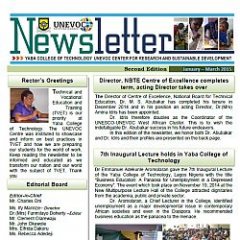 The ways we devour vitality and produce commodities are altering. This transformation may benefit the worldwide economy, however resource producers must adapt to stay aggressive.
The ways we devour vitality and produce commodities are altering. This transformation may benefit the worldwide economy, however resource producers must adapt to stay aggressive.
Policy makers might seize the productiveness benefits of this resource revolution by embracing technological change and allowing a nation’s power combine to shift freely, whilst they address the disruptive results of the transition on employment and demand. Resource exporters whose finances rely on resource endowments will need to discover alternative sources of income. Importers may stock up strategic reserves of commodities whereas prices are low, to safeguard in opposition to provide or value disruptions, and spend money on infrastructure and training. Create a profile to get full access to our articles and experiences, together with these by McKinsey Quarterly and the McKinsey Global Institute, and to subscribe to our newsletters and email alerts.
A new McKinsey Global Institute report, Beyond the supercycle: How expertise is … Read more
 The ways we devour power and produce commodities are changing. This transformation may gain advantage the global financial system, however resource producers should adapt to remain competitive.
The ways we devour power and produce commodities are changing. This transformation may gain advantage the global financial system, however resource producers should adapt to remain competitive. The ways we eat vitality and produce commodities are changing. This transformation may gain advantage the global economic system, however useful resource producers will have to adapt to stay aggressive.
The ways we eat vitality and produce commodities are changing. This transformation may gain advantage the global economic system, however useful resource producers will have to adapt to stay aggressive. The ways we consume vitality and produce commodities are changing. This transformation may gain advantage the global financial system, however useful resource producers must adapt to stay aggressive.
The ways we consume vitality and produce commodities are changing. This transformation may gain advantage the global financial system, however useful resource producers must adapt to stay aggressive. The methods we eat vitality and produce commodities are changing. This transformation could benefit the global financial system, but useful resource producers should adapt to remain competitive.
The methods we eat vitality and produce commodities are changing. This transformation could benefit the global financial system, but useful resource producers should adapt to remain competitive.